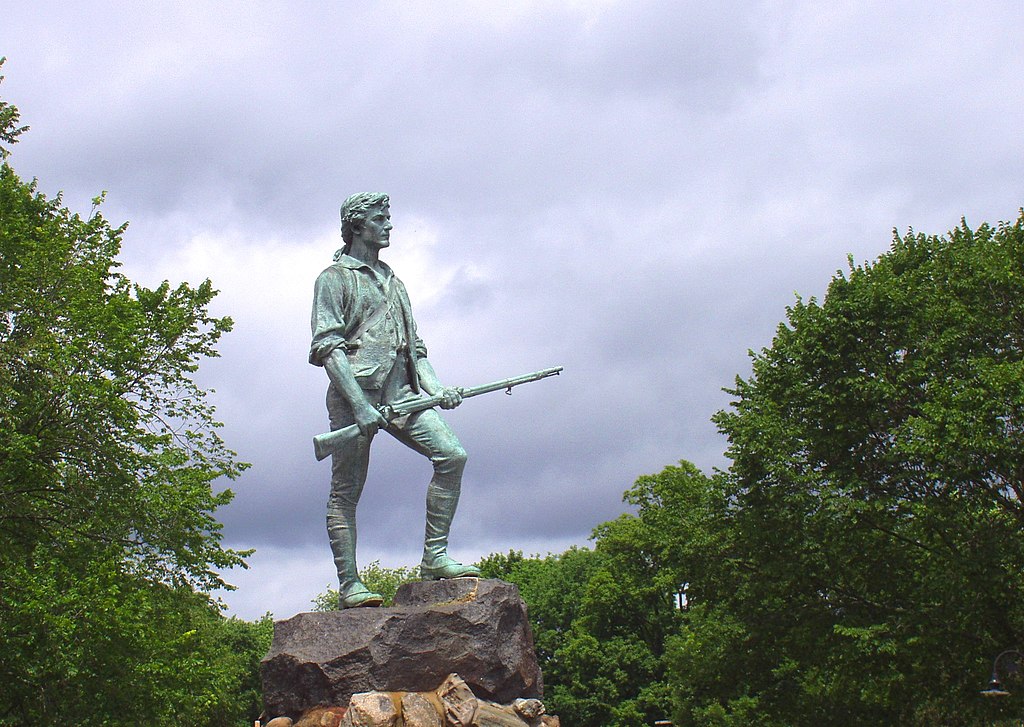
By Dave Workman
Editor-in-Chief
Call it the greatest political and military blunder in the history of the British Empire.
At about 5 a.m. on the morning of April 19, 1775, troops under the command of Lt. Col. Francis Smith began arriving in the tiny village of Lexington where about 80 members of the local militia under the command of Capt. John Parker were waiting. Alerted by gallopers from Boston that “the Regulars” were coming in an effort to capture and confiscate or destroy arms and ammunition in Concord, this was the morning when diplomacy collided with musket balls.
Today marks the 249th anniversary of that historic day, more than a year before the Declaration of Independence was signed on July 4, 1776.
The advance British contingent led by Major John Pitcairn saw the militia lined up on the Lexington Common. Legend has it, complete with words inscribed on a monument in Lexington, that Parker advised his men to stand fast, don’t fire unless fired upon, “but if they mean to have a war, let it begin here.”
History does not say who fired the first shot, but what followed was the beginning of a nightmare for the Regulars. Eight members of the militia were killed, and a shooting war was ignited.
Following this initial skirmish, after the militia scattered, the British marched on for about three more hours to Concord, their initial target. By the time they arrived, hundreds of militia members—“Minutemen” who had grabbed rifles or muskets, powder and ball—had converged on Concord and more were on the way. It was at the North Bridge where history records the first real blood spilling. This was the incident mentioned by Robert Frost in his classic “Concord Hymn” about the “embattled farmers” who stood at the bridge and “fired the shot heard ‘round the world.”
Lives were lost on both sides, and it was immediately clear that the fight for independence had irreversibly crossed the line of history. Whether Smith’s troops anticipated such fierce resistance by “rebels” was of shrinking importance by mid-morning. By the afternoon, as the British Regulars were making a retreat back to Boston—they had to return via Lexington where Capt. Parker and some of his militia were waiting—there were at least a couple of thousand armed and angry Colonials dogging them the whole way, firing from ambush, from behind trees and rock walls, and their marksmanship was adequate enough to kill quite a few of the Redcoats.
Some estimates put the number of Colonials at about 4,000 by the time the British made it past Lexington and were heading toward Boston.
A detailed history of the battles that fateful day can be found at Wikipedia, with names of all the players, how the next day shaped up as thousands of militia from all over the Massachusetts colony began converging on the Boston area. Gage probably didn’t realize it, but his move to seize the militia powder and ball, and a couple of cannons, started the war that would ultimately lead to independence, and the birth of a new nation, where its founders made certain to include the Second Amendment protection of the right to keep and bear arms as part of the new Constitution.



